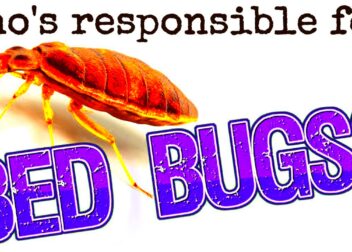What You Need to Know About Mississippi Landlord-Tenant Laws
Mississippi’s landlord-tenant laws are meant to defend both parties that are engaged in rental arrangements. If you are a landlord leasing a property or a tenant searching for a residence, you should be well versed with your rights and obligations. Both state policies and local ordinances govern such laws which differ widely across the country. The aim of this write-up is to offer an explicit summary of what one needs to know in order to maneuver through these regulations successfully.
Key Responsibilities of Landlords in Mississippi

You’re tasked with ensuring that your tenants live in safe and healthy environments as a Mississippi property owner. Following are some of the important obligations:
- Maintain Habitable Conditions: Landlords must ensure that the property is safe, clean, and suitable for living. This includes repairing any structural issues, plumbing, heating, and ensuring proper sanitation.
- Provide Necessary Utilities: You must supply essential utilities such as water, electricity, and heating unless otherwise stated in the lease agreement.
- Respect Tenant Privacy: Landlords should provide notice before entering a tenant’s unit, typically 24 hours, except in emergencies.
- Handle Security Deposits Correctly: It’s important to manage security deposits according to Mississippi law, including returning them within a specified timeframe after the lease ends.
Essential Rights of Tenants in Mississippi

In Mississippi, tenants’ rights are meant to protect them against aberrant treatment and ensure their protection in rented properties. Understanding these rights is important:
- Right to a Safe and Healthy Home: Tenants have the right to live in a property that is free from hazardous conditions. If repairs are needed, landlords must address them in a timely manner.
- Right to Privacy: Tenants have the right to privacy in their rental units. Landlords must provide notice before entering, except in emergencies.
- Protection Against Retaliation: If a tenant exercises their legal rights, such as complaining about unsafe living conditions, landlords cannot retaliate against them.
- Right to Fair Eviction: If a landlord wishes to evict a tenant, they must follow the legal process, which includes providing notice and possibly going to court.
Lease Agreements and Their Importance
In Mississippi, the landlord-tenant relationship is based on lease agreements. They describe the terms surrounding rentals and responsibilities to both parties. A well-crafted lease not only safeguards the property of the landlord but also affirms his or her rights as well. This is why a leasing contract is so important:
- Clear Terms: A lease specifies the rental amount, due dates, and length of tenancy, eliminating any confusion.
- Rights and Responsibilities: The agreement outlines what both the landlord and tenant are responsible for, reducing the potential for disputes.
- Legal Protection: In case of a disagreement, a lease can serve as legal documentation in court.
- Customizable Clauses: Landlords can include specific rules, such as pet policies or maintenance responsibilities, tailored to their property.
Prior to affixing their signatures, both sides must examine and comprehend the occupancy agreement. In case of vagueness related to any provisions, clarifications should be sought or legal counsel obtained. A satisfying tenancy is made possible by a well drafted lease.
Security Deposits and Their Regulations
Rental process relies heavily on security deposits, which protect landlords from damages or non-payment of rent. Nevertheless, Mississippi has unique laws regarding these deposits which both landlords and tenants must recognize:
- Amount Limit: In Mississippi, landlords can charge a security deposit equal to one month’s rent, but not more.
- Proper Handling: Landlords must keep the deposit in a separate account and cannot commingle it with personal funds.
- Return Timeline: After a tenant moves out, landlords are required to return the security deposit within 45 days, along with an itemized list of any deductions.
- Deductible Expenses: Landlords can deduct costs for unpaid rent, damage beyond normal wear and tear, and cleaning fees if specified in the lease.
In order to ensure their security deposit is protected, tenants need to ensure that they have documented the state of the property when they are moving in and moving out. Additionally, it will also be useful for them to keep the channels of communication open with landlords so that any issues may be resolved.
Eviction Process and Tenant Protections
For landlords and tenants alike, it is important to know what their rights are in relation to eviction laws in Mississippi. However, eviction should not be thought of as simply an act of asking someone to leave; rather, it is a legal procedure that must be adhered to so as to promote justice:
- Grounds for Eviction: Common reasons include non-payment of rent, violation of lease terms, or unlawful behavior. Landlords must have legitimate grounds to initiate eviction proceedings.
- Notice Requirements: Before starting the eviction process, landlords must provide a written notice to the tenant. The type of notice depends on the reason for eviction:
- 3-Day Notice: For non-payment of rent.
- 30-Day Notice: For lease violations or other reasons.
- Court Proceedings: If the tenant does not comply with the notice, the landlord can file for eviction in court. The tenant has the right to contest the eviction.
- Tenant Protections: Tenants cannot be forcibly removed without a court order. They also have the right to appeal an eviction ruling.
Getting to know the eviction process can aid tenants in getting ready and safeguarding their privileges. Clear communication is essential for both parties, and legal counsel should be sought at any point when navigating what can be a harrowing experience for many.
Dispute Resolution Options for Landlords and Tenants
Landlord-tenant disputes are common, though it can be hard to find a resolution for them. Recognizing your choices may help avert conflicts from worsening, and in this way we ensure that both sides are heard. Below are some frequent means of settling disputes in Mississippi:
- Open Communication: The first step should always be a conversation. Many issues can be resolved through direct communication, where both parties express their concerns and seek a compromise.
- Mediation: If direct communication doesn’t work, mediation can be a helpful next step. This involves a neutral third party who facilitates a discussion between the landlord and tenant to reach an agreement.
- Arbitration: In arbitration, a neutral party makes a binding decision on the dispute after hearing both sides. This option is more formal than mediation and can be quicker than going to court.
- Small Claims Court: If mediation or arbitration fails, either party may take the issue to small claims court. This is a more formal process, but it’s designed to resolve disputes quickly and efficiently.
Resources for Further Information on Landlord-Tenant Issues
Mississippi possesses an array of resources for gathering extensive knowledge about this intricate subject and landlord-tenant regulation laws. The following are essential spots to visit:
- Mississippi Secretary of State: Their website provides valuable information about state laws regarding rentals and property.
- Legal Aid Organizations: Local legal aid offices offer free or low-cost legal assistance to both landlords and tenants.
- Consumer Protection Offices: These offices can provide guidance on tenants’ rights and landlord obligations.
- Local Housing Authorities: Many cities have housing authorities that can provide resources and assistance specific to your area.
Further, think about seeking guidance from lawyers who focus on landlord-tenant matters. They may be able to give customized recommendations that derive from your individual circumstances.
Frequently Asked Questions About Mississippi Landlord-Tenant Laws
It is okay to have inquiries regarding laws governing landlords and tenants, particularly if you are just starting out with renting or handling properties. Some of the most common questions include:
- What is the legal process for eviction?
- Eviction must follow a specific process that includes providing written notice and potentially going to court.
- How much notice must a landlord give before entering a rental property?
- Landlords typically must provide 24 hours’ notice before entering, unless it’s an emergency.
- What can be deducted from a security deposit?
- Landlords can deduct for unpaid rent, damages beyond normal wear and tear, and cleaning fees, provided these are outlined in the lease.
- Can tenants withhold rent for repairs?
- Generally, tenants should not withhold rent. Instead, they should notify the landlord of needed repairs and allow time for them to be addressed.
In case of having more inquiries or worries about something, it’s the local lawyer or housing advocate that will give you an in-depth explanation regarding your particular case.
Conclusion and Final Thoughts on Understanding Landlord-Tenant Laws
It is important that both parties comprehend landlord-tenant laws in Mississippi so that a harmonious rental experience can be achieved. These laws are meant to protect the rights and responsibilities of both landlords and tenants. Landlords and tenants can therefore navigate their relationship better when they know what to expect from lease agreements, security deposit regulations and the eviction process. Always communicate openly with one another and may use dispute resolution mechanisms when conflicts arise. To navigate them further, there are many resources to help people understand these laws. Overall, having information is vital for enabling a conducive renting atmosphere for all concerned.


